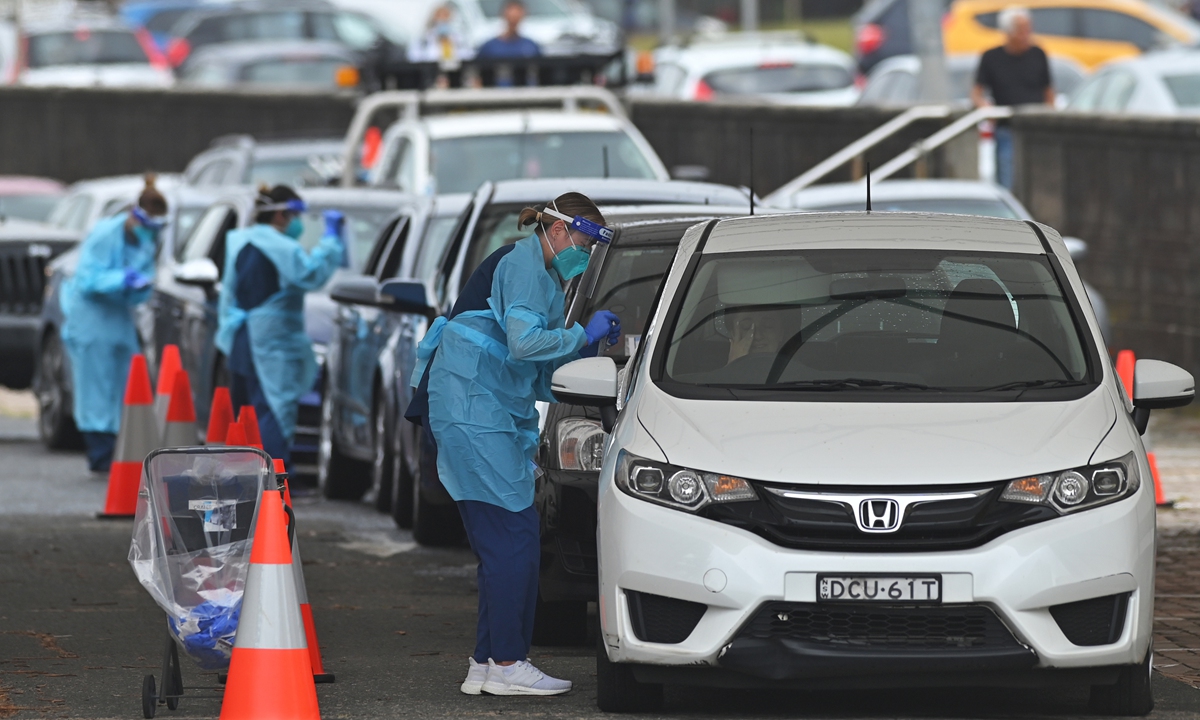Australian opposition leader calls for faster coronavirus vaccine rollout

Health workers perform COVID-19 tests at a drive-through testing center at Bondi Beach in Sydney, Australia on Sunday. Sydney was isolated from the rest of Australia on Sunday after all of the country’s states and territories imposed travel restrictions on its residents as a coronavirus cluster in the city grew to around 70. Photo: AFP
The leader of Australia's opposition Labor Party has called for the country's coronavirus vaccine rollout to be accelerated.
Anthony Albanese said on Wednesday that the administration of the Pfizer COVID-19 vaccine should begin as soon as it is approved by the Therapeutics Goods Administration (TGA) rather than in March as currently planned.
The federal government has argued that there is no need to rush vaccinations in Australia because of low coronavirus case numbers, but Albanese said that it made "no sense" to delay the rollout once approval is granted.
He said that the virus was impacting Australians' mental health, describing the government's vaccine plan as "incredibly complacent."
"If the approval is made in January, it should be rolled out in January as a matter of urgency," he told the Australian Broadcasting Corporation.
Health Minister Greg Hunt said on Monday that even with an outbreak of cases in Sydney the threat of COVID-19 in Australia was "nowhere near serious enough to authorize a rollout of a vaccine before the full approval process is complete."
The government has previously said that vaccinations will begin in the first quarter of 2021 with the elderly, vulnerable and healthcare workers to be prioritized.
New South Wales (NSW), of which Sydney is the capital, recorded eight locally acquired cases of COVID-19 on Wednesday, with an additional eight cases in returned travellers in hotel quarantine.
"Seven of the locally acquired cases are linked to the Avalon cluster. Investigations continue into the source of the Avalon cluster, which now numbers 97," a statement from NSW Health said.
